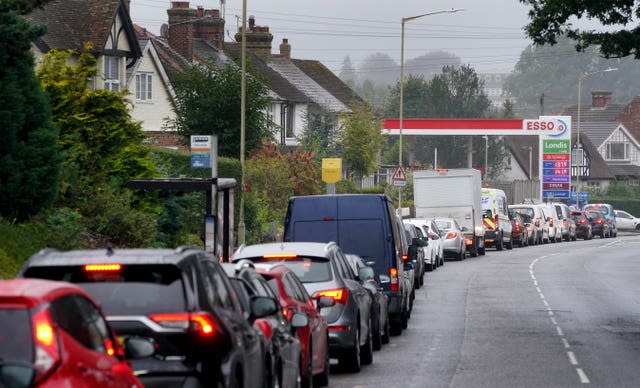Kwarteng hits out at low-wage firms relying on cheap immigrant workers
Business Secretary Kwasi Kwarteng has hit out at employers seeking to keep wages down through the use of cheap immigrant labour.
Mr Kwarteng said the economy is going through a period of “transition” as it moves to a new “equilibrium” following Britain’s withdrawal from the EU.
He said businesses needed to understand the Brexit vote in 2016 represented a rejection of the old “low-wage, high-immigration” economic model.
Mr Kwarteng also expressed concern about the way the fuel crisis flared up following reports of a shortage of tanker drivers which he said showed the “power of the media”.
His warning came as the meat industry became the latest sector to press for a relaxation of the immigration rules to address a shortfall of 10,000 trained butchers.
Asked in an interview with the ConservativeHome website whether he thought businesses such as hauliers, fruit farmers and meat processors, which have complained of labour shortages, were trying to go back to the “old ways”, Mr Kwarteng replied: “That’s absolutely right.”
He said: “Having rejected the low-wage, high-immigration model, we were always going to try to transition to something else.
“What we’re seeing now is part of that transition. You’re quite right to say people are resisting that, particularly employers that were benefiting from an influx of labour that could keep wages low.”

“I think this is a transition period. As economists would describe, between equilibrium A and equilibrium B there’s always going to be a transition period.”
Mr Kwarteng said he believed the transition could be “quite short,” adding: “I think in a year we could be in a totally different place to where we are today.”
On the fuel crisis, he said the situation was “stabilising” after “an intense period of anxiety and a lot of pressure”.
He said: “That was an extraordinary thing about the power of the media.
“If I look back on Monday September 20, my two issues there were carbon dioxide, and the shortage of it, and the gap with the energy suppliers.
“Those were the two issues. This petrol forecourt thing literally flared up I think on the Thursday, there was a leaked conversation, the thing was splashed in the paper on the Thursday.
“There was a full-blown crisis by the weekend, which is now stabilising, and I am hopeful that it will recede, but let’s see.”

 Yahoo News
Yahoo News 
